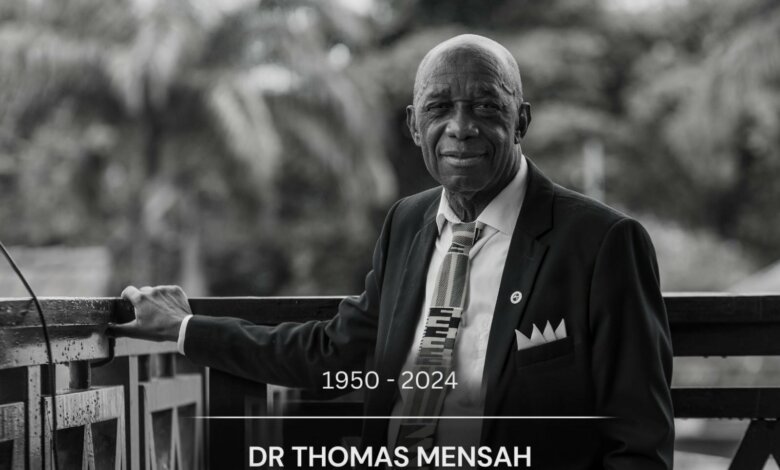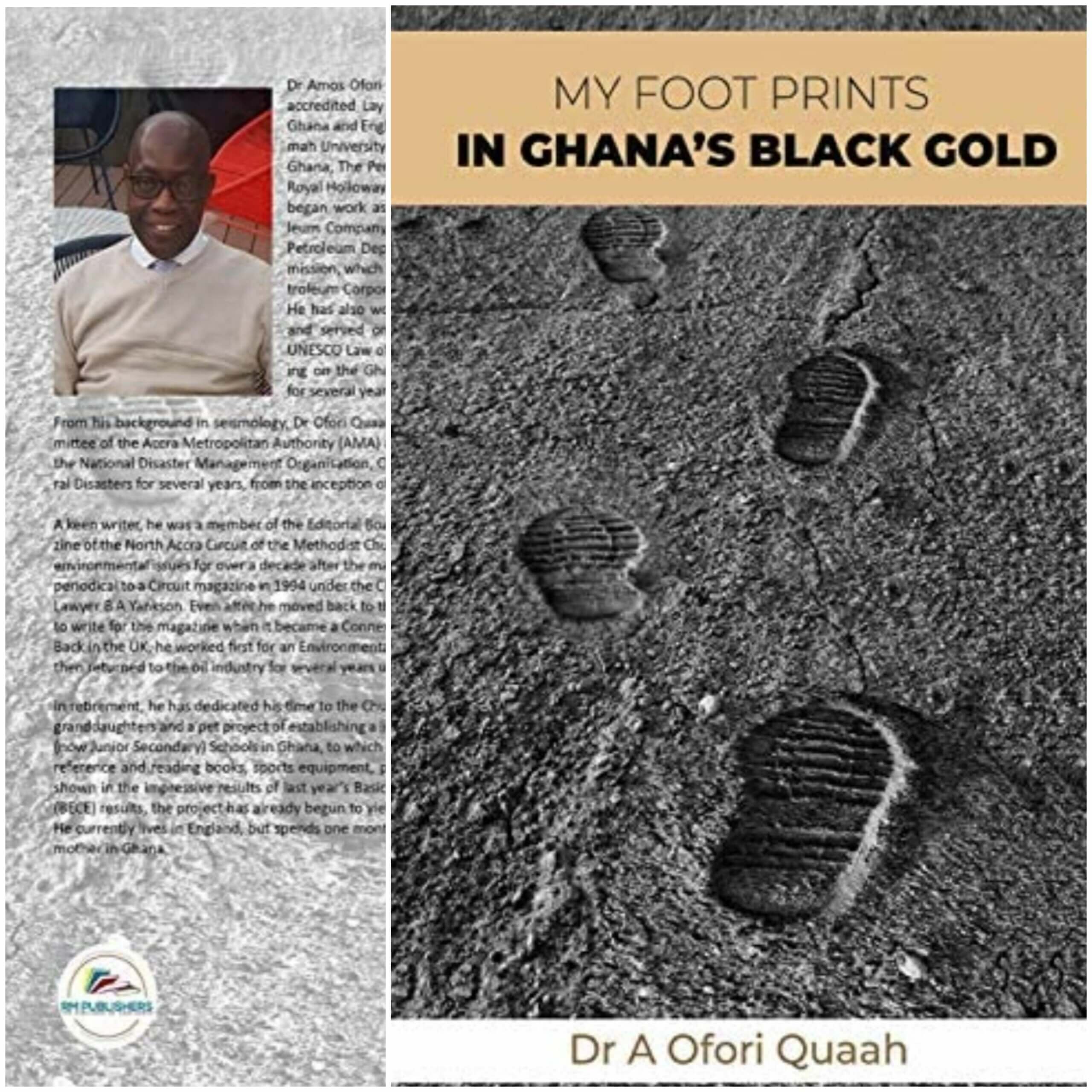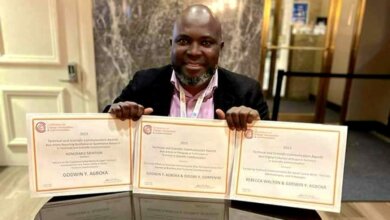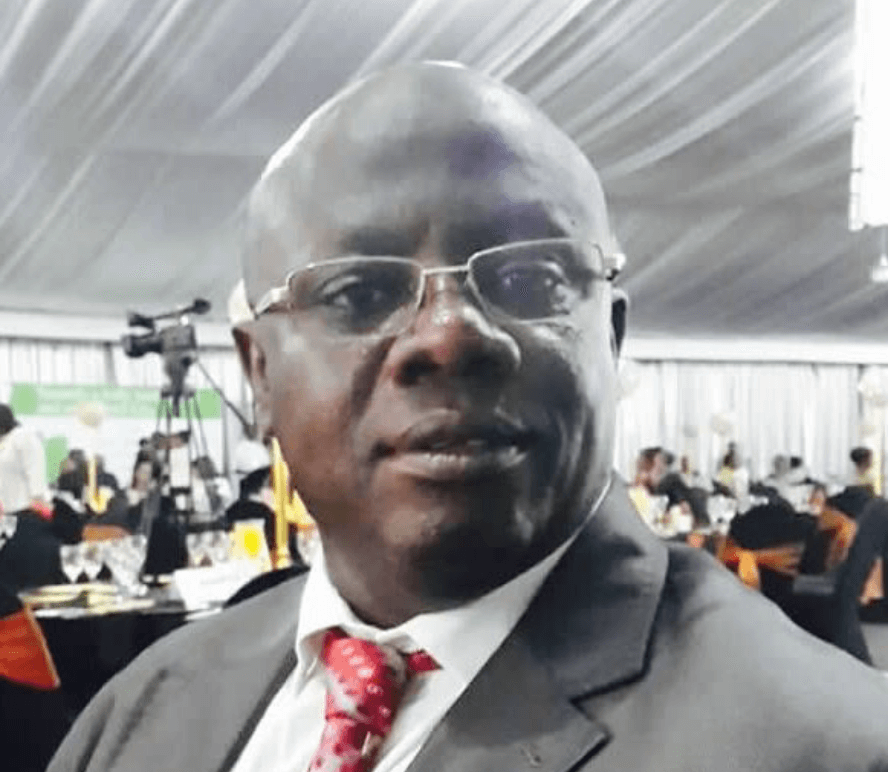Remembering Dr. Thomas Mensah, Ghanaian fibre optics pioneer

Thomas Mensah (PhD), a Ghanaian-American chemical engineer and inventor who gained global recognition for his pioneering work in fibre optics, has passed away after a brief illness.
Dr. Mensah died in his home city on Wednesday, March 27, 2024, at the Kumasi Catholic Hope Exchange Hospital, in the Ashanti region of Ghana. He passed away at the age of 74 according to a statement from his family on Thursday, March 28.
Before his death, the revered innovator was passionate about green energy and sustainable developments. He played a key role in transforming global technology and telecommunications, through the development of fiber optic manufacturing, nanotechnology and superconductor technology.
He was one of three African American men that were chosen out of 167 inventors to be honored by NAI (National Academy of Inventors) in 2015 at the California Institute of Technology. He was the owner of several patents awarded by the US Patent and Trademark Office, seven of which he received in six years.
Scholarship
Dr. Mensah was born in Kumasi, Ghana, and was fluent in French from a tender age, with influences from his father’s cocoa merchantry with French producers of chocolate. He would later go on to win the Ghanaian National French Competition in Accra in 1968 for the Ordinary Levels and again in 1970 for the Advanced Levels.
Dr. Mensah finished his undergraduate program in chemical engineering at the Kwame Nkrumah University of Science and Technology, after attending Adisadel College in Cape Coast, Ghana. Following that, he was awarded a scholarship by the French government to attend Montpellier University in France.
He participated in an MIT programme while he was there, and in 1977, MIT awarded him a certificate in Modelling and Simulation of Chemical Processes. Dr. Mensah received his PhD in Chemical Engineering from Montpelier University a year later.
Fibre optic & laser guided weaponry pioneer
Dr. Mensah began working in fibre optics research at Sullivan Park, New York, when he joined Corning Glass Works in 1983. Optical fibre with loss below the critical attenuation limit of 20 dB/km had previously been developed by Corning researchers, however production of the fibres could not be accelerated beyond 2 metres per second.
Through a series of inventions, Dr. Mensah enhanced the manufacturing process to the point where, by 1985, production was moving at a speed of 20 metres per second. Because of this, optical fiber’s price was on par with that of conventional copper cables. For this effort, Mensah was honoured with the 1985 Corning Glass Works Individual Outstanding Contributor Award. In the end, his efforts increased manufacturing speed above 50 metres per second.
In 1986, Dr. Mensah relocated to Bell Laboratories, where he oversaw a programme to create the first laser-guided weaponry for the guided missile programme run by the US Department of Defence. The creation of missiles that can move faster than sound was made possible by this programme (Mach 1).
Dr. Mensah then held the positions of President and Chief Executive Officer at Georgia Aerospace Systems, a company that produced nanocomposite structures for the US Department of Defense’s missiles and aircraft.
He also served on the board of several organizations, including the American Institute of Chemical Engineers (AIChE) National Board of Directors (1987–1990), and was a Trustee of the Board of AIChE Foundation and a board member for the NASA Space Grant Consortium at Georgia Institute of Technology.
From early 2016, Dr. Mensah worked to create a “Silicon Valley of the South” in the U.S. state of Texas. The effort is expected to bring a consortium of technology companies, namely Apple, Google, AT&T Inc., Verizon, Texas Instruments, Amazon, and Defense Manufacturing Companies like Lockheed Martin, Raytheon, and Missile Systems, to collaborate with major Texas institutions of higher learning in new innovation centers that will create advanced products for the 21st Century.
Boeing Space Systems and NASA in Houston along with the US Naval Base in Corpus Christi will also participate in its innovation centers.
A man of many recognitions
Dr. Mensah received multiple honours, such as being elected a Fellow of the US National Academy of Inventors (2014), geting the AIChE’s Eminent Engineers award, the NSBE’s highest honour, the William Grimes Award, the Percy L. Julian Award, the Golden Torch Award, and the Turner’s Trumpet Award for Fibre Optics Innovation. In addition, he belonged to the AIChE 100.
From 1988 to 1992, Mensah was a member of the Massachusetts Institute of Technology’s Chemical Engineering visiting committee. In addition, he is the author of four books: Nanotechnology Commercialization (2017), The Right Stuff Comes in Black, Too (2013), Superconductor Engineering (1992), and Fibre Optics Engineering (1987).
In the first quarter of 2015, the US State of Georgia government enacted a House Resolution praising Mensah and his contributions. In the same year, he was also given the International Business Leadership Award by the African Leadership Magazine in Atlanta, Georgia, USA.
He got an honorary Doctor of Science degree at the Kwame Nkrumah University of Science and Technology, in Ghana in November 2017. A month later, he was granted the Kwame Nkrumah African Genius Award in Science, Technology, and Innovation.
Source: TheAfricanDream.net
Abeeb Lekan Sodiq is a Managing Editor & Writer at theafricandream.net. He is as well a Graphics Designer and also known as Arakunrin Lekan.





